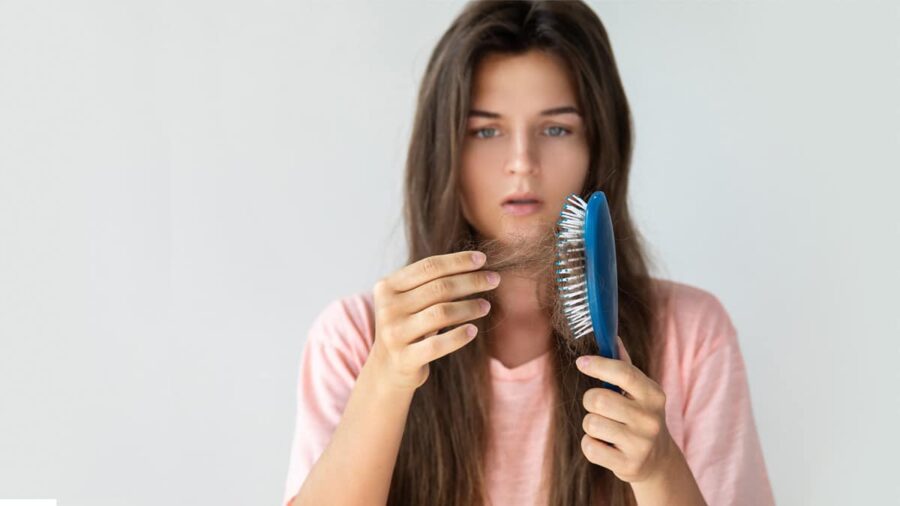When you notice that you suddenly lose more hair or that a bald spot develops, this can have various causes. You suffer from hereditary hair loss or it is due to hormonal changes that can be permanent or temporary in nature.
There are different forms of hair loss. Women often have a different form of hair loss than men. Baldness in women is mainly manifested in the midlife of the head. The hair becomes thinner behind the hairline and the scalp shines through. Male hair loss generally starts at the front hairline, temples and crown.
Slow thyroid
Due to a slow thyroid function, there is less good blood flow. As a result, there is also a poorer supply of nutrients to the hair. This can lead to hair loss.
Hair loss due to stress
Stress hormones have a negative effect on hair follicles from which hair grows. When the hair moves from the growth phase to the transition phase and there is stress at that time, it can affect the nerves that surround the hair follicles. This can lead to inflammation of the hair follicles resulting in hair loss.
When your body experiences stress (mental, physical, due to poor nutrition, too fanatic sports or intestinal problems, for example) the stress hormone produces cortisol. This hormone cortisol is ‘made’ from progesterone.
But progesterone is also needed in the process of converting the thyroid hormone T4 to T3 (the active hormone) and during the menstrual cycle.
For example, the functioning of the thyroid gland is negatively affected when progesterone is used to make cortisol. Less progesterone is available for conversion to the active thyroid hormone. And as mentioned above, an under active thyroid gland is also a cause of hair loss.
Crash / underweight the reason for hair loss
Crash dieting or being underweight also causes the thyroid gland to go into low-power mode. And this causes hair loss. A strict diet that causes hair loss is actually a form of baldness that occurs because you do not get enough nutrients (see cause thyroid)
PCOS the cause of hair loss
PCOS is a hormonal imbalance that occurs in about 10% of women of childbearing age. Complaints related to this are; no or irregular periods (less than 8 times a year), acne, mood swings, gaining weight earlier, excessive hair and hair loss.
There may also be cysts (fluid blisters on the ovaries that can be seen on an ultrasound), increased LH level and insulin resistance in PCOS. This alone affects the testosterone level (male hormone) compared to the female hormones, which can cause hair loss.
Women with PCOS are more likely to have increased DHT (dihydrotestosterone). DHT is a stronger variant of the male hormone. This hormone plays a role in hair loss and baldness because it causes a hair follicle to die earlier.
DHT is produced in the body through the conversion of testosterone. The enzyme 5-alpha reductase is required for this conversion. Studies show that women with PCOS also produce more 5-alpha reductase compared to women without this syndrome. As a result, these women also have a higher DHT level, which explains hair loss and excessive hair.
Also Read: How Do You Live Healthy With A Low Budget


